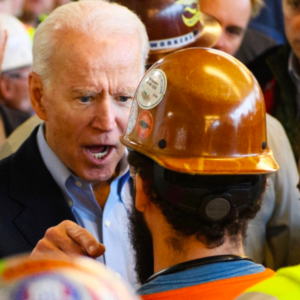U.S. energy policy has often been inconsistent; sometimes incoherent.
Richard Nixon wanted the U.S. to produce more oil and gas. But he employed price controls to keep the price of energy low—guaranteeing that U.S. production would fall.
Jimmy Carter set a goal for solar to provide 20 percent of U.S. energy by 2000. His program first offered subsidies for solar hot water heating. But he was so sure that natural gas and oil were near exhaustion that he accepted an end date for the subsides. When they ran out in 1987, most solar firms went out of business.
George W. Bush wanted the U.S. to drill for more oil and gas, and then turned around and accused the American people of being addicted to oil. He said that had to change. But his means to that end rested on subsidizing advanced ethanol, which was to end our addiction by 2012; only it didn’t. His advanced ethanol didn’t even become commercially viable.
And now we come to Joe Biden’s energy-climate policies—which have taken inconsistency and incoherence to a new level.
Here’s the underlying idea behind the Biden energy policy: We face an “existential threat” from climate change. That means if we don’t take drastic action to stop greenhouse gas (GHG) emissions we’re all going to die! And soon, probably by 2030, certainly by 2050.
If things are so dire, we need to end GHG emissions starting now. We have to stop burning coal, natural gas, and, of course, oil because burning any of them creates GHG emissions.
By 2035, electric power must be produced only from renewables: Mainly wind, sun, and water. It will take some time to erect tens of thousands of windmills, deploy millions of solar panels, and extend transmission lines thousands of more miles. But in a bit under 15 years no more coal or gas power plants.
Virtually all fossil fuel use will end 15 years later when we’ll achieve “net zero” emissions. We’ll drive electric cars, heat our homes with electricity, fly in battery-powered airplanes, even smelt metals with “clean” electricity. Fossil fuels will stay in the ground. Forever.
Many people have written about how unrealistic this is. But ok, if you believe that all life is imperiled, you may be wrong but it is not inconsistent (or incoherent) to demand the end of fossil fuel use.
The president started boldly on that path: Damning fracking, limiting oil drilling leases, stopping the Keystone pipeline, and backing the Clean Electricity Performance Program (CEPP) a multi-billion dollar bonanza for the wind and solar industries, and punishment for electric utilities that won’t go along.
What does Biden do next? In August, with the price of oil, and especially gasoline, rising, he begs the Organization of Petroleum Exporters to pump more oil to lower prices. As Econ 101 tells us, lower prices will mean more oil will be demanded.
But how do we get to net zero by encouraging more oil production and consumption? Well, we don’t.
A climate alarmist like Biden should be delighted with higher prices for oil and natural gas. It will reduce fossil fuel consumption. In fact, all of his other policies will raise fossil fuel prices.
Worse still, with gas prices remaining high in October, he asked U.S. producers to pump more oil. He was tacitly asking for more fracking because so much U.S. oil and natural gas is produced that way.
So here we are, According to the president (as well as many Democrats in Congress) life on Earth is endangered by burning fossil fuels; to prevent it, we must stop burning them.
That is, we must unless our political party’s chances in the next election are imperiled.
How seriously should we take Biden when he claims we face an existential threat? By his actions, it’s not clear even he believes it.

